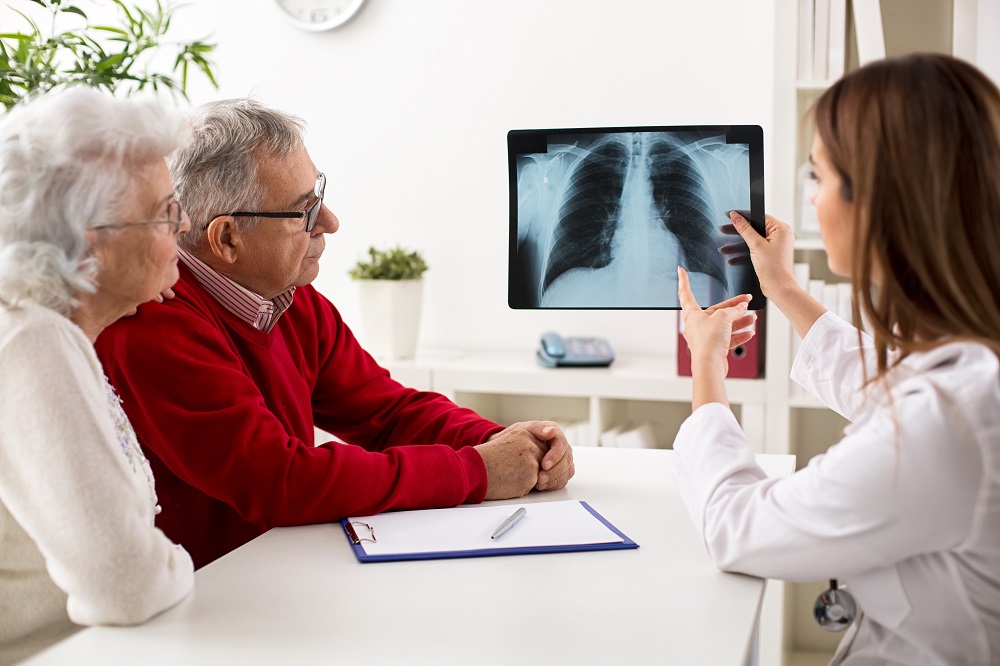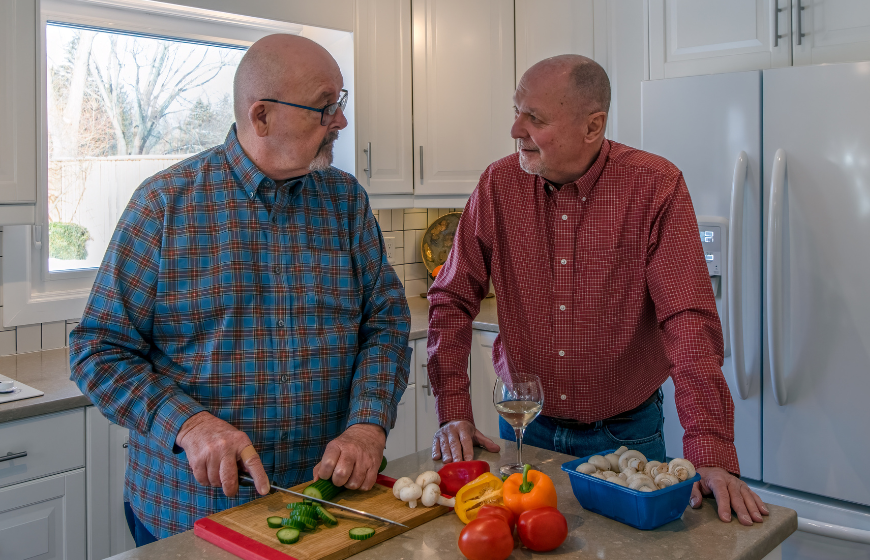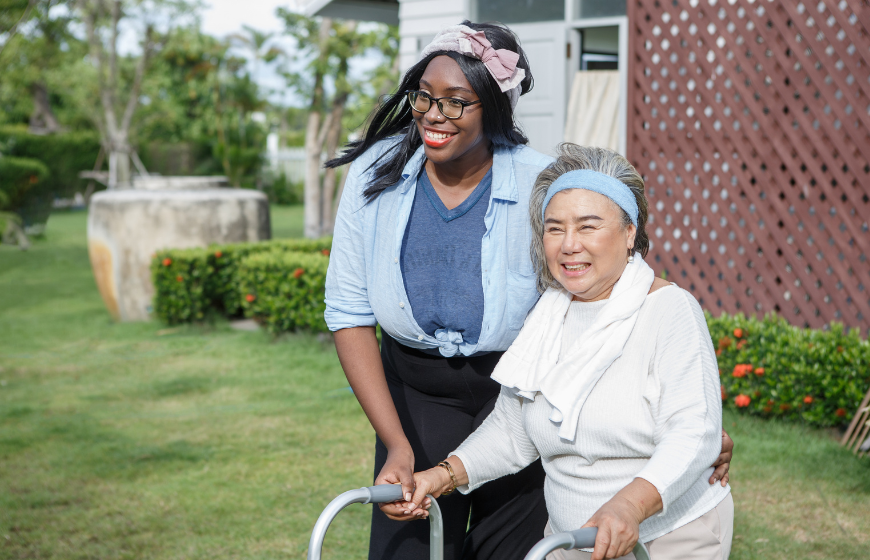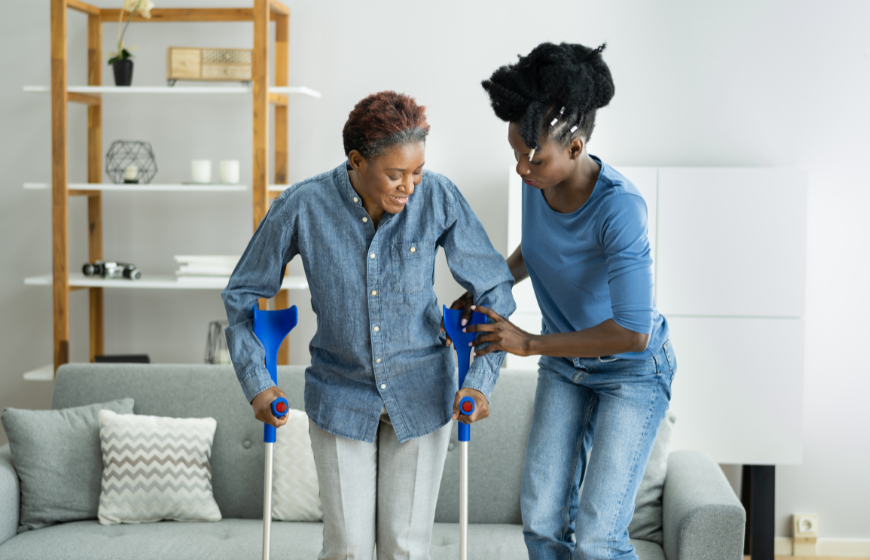Receiving a cancer diagnosis is often a life-changing experience for individuals and their families. The seemingly insurmountable obstacle can be hard to wrap your head around, especially when it’s unexpected.
The compassionate team at Alliance Homecare in New York is here to help you gain a better understanding of cancer in older adults, including the most common types and details about treatment options. Let’s get started.
What Are the Most Common Cancers in Older Adults?
Roughly two-thirds of cancer diagnoses and 70% of mortalities occur in adults 65 and older. But what are the most common types diagnosed in elderly individuals? While the stats and risk factors vary, the list includes prostate, breast, colon, lung, bladder, stomach, pancreatic, and kidney cancer, as well as melanoma, lymphoma, and leukemia.
Early detection and proper care are crucial in ensuring the best outcomes for cancer patients. Here’s what elderly individuals and their loved ones should know about these chronic conditions.
Prostate Cancer
Prostate cancer is among the most common chronic illnesses in men over age 65. According to the CDC, nearly 250,000 were diagnosed in 2020 alone, and devastatingly, it took the lives of almost 35,000 the same year.
The good news is that screening for prostate cancer is widely available, and there’s a range of effective treatments. In fact, over 98% will live five or more years after receiving a diagnosis.
Breast Cancer
Like prostate cancer, breast cancer is one of the most common forms in individuals over and over. Though the condition is more often diagnosed in women, men can get it too.
In 2020, more than 285,000 women received a breast cancer diagnosis, and almost 45,000 passed away from the illness. However, nearly 90% of people suffering from breast cancer will live five years past their initial diagnosis, so early detection is key.
Colon Cancer
Upwards of half of all colon cancer diagnoses are in adults 67 and older. Thanks to widely accessible preventative measures, it’s much less common than breast and prostate cancer, though the survival rate is not quite as high.
Over 100,000 people received a colon cancer diagnosis in 2020, and more than 50,000 passed away from the condition. About two-thirds of individuals with this type of cancer live five or more years after a diagnosis.
Lung Cancer
More than 50% of individuals with lung cancer are over 70 years old. While there have been many advances in the treatment of this chronic illness, it remains one of the deadliest forms of cancer.
Sadly, the survival rate for lung cancer is just over 20%. In 2020, over 235,000 individuals received a diagnosis, and roughly 130,000 passed away.
Bladder Cancer
Then there’s bladder cancer, which most often affects elderly individuals over the age of 65. Almost 85,000 people were diagnosed in 2020 alone, and over 17,000 passed away from the disease. However, more than 70% survive at least five years after their diagnosis.
Pancreatic Cancer
Pancreatic cancer is among the most terminal forms of cancer and one of the most common in elderly adults. The condition starts in the tissues of the pancreas and typically spreads quickly to other organs throughout the body.
There are almost 60,000 new diagnoses of pancreatic cancer each year and roughly 46,000 deaths. Devastatingly, the five-year survival rate for patients is only 9%.
Stomach Cancer
Stomach cancer most often affects elderly adults. The average diagnosis age is 68, and roughly 60% are at least 65 years old. Among men, the lifetime risk of developing the condition is one in 96, and among men, it’s about one in 152.
Risk factors for stomach cancer include smoking cigarettes, eating a diet high in meat, eating high amounts of processed and salty foods, heavy alcohol consumption, and a family history of the disease. Additionally, it’s more common among individuals of South American and Asian descent.
Kidney Cancer
Kidney is another relatively common type of cancer in older adults. More specifically, renal cell carcinoma (RCC) occurs most often in adults, with about half of diagnoses occurring in those 65 and older.
Sometimes called hypernephroma or renal adenocarcinoma, this type of cancer typically develops as a single tumor in one kidney. With about 75,000 new cases each year and 15,000 fatalities, the five-year survival rate for kidney cancer is roughly 75%.
Melanoma
Melanoma is a common form of skin cancer that begins in pigmented skin tissues, though it can also form in the eyes. The condition is most frequently diagnosed in people between 60 and 70 years old.
There are almost 100,000 melanoma diagnoses each year in the United States. While this type of skin cancer is related to over 7,000 deaths annually, the five-year survival rate is 92%.
Non-Hodgkin’s Lymphoma
Non-Hodgkin’s lymphoma (NHL) is a type of cancer in older adults that begins in the lymphatic system. It’s characterized by tumors developing from white blood cells called lymphocytes.
More than half of NHL diagnoses occur in individuals over the age of 65, and sadly, cases appear to be increasing by about 8% each year. About 71% of those who receive a Non-Hodgkin’s lymphoma diagnosis will live past five years.
Leukemia
Leukemia is a type of cancer in which bone marrow and blood-forming organs generate abnormal leukocytes (white blood cells). Ultimately, this suppresses the production of healthy blood cells and often leads to anemia and other concerning ailments.
This type of cancer is most often diagnosed in people between 65 and 74 years of age. Treatments are available for leukemia, including blood transfusions and chemotherapy, and over 60% of individuals live five years past their initial diagnosis.
Why Choose In-Home Cancer Care?
For many older individuals facing a cancer diagnosis, living at home is key to remaining as comfortable as possible during treatment or palliative end-of-life care. When you opt for at-home care, a registered nurse will develop a personalized plan, and a professional caregiver with training in your specific type of cancer will provide a range of services that match the unique needs of you and your family.
In-Home Chronic Cancer Care for Seniors in New York
Alliance Homecare is a fully licensed home care services agency (LHCSA) proudly serving patients and their families in the New York metropolitan area. We offer comprehensive in-home cancer services and chronic care management with plans involving skilled RNs (registered nurses) and experienced home health aides with specialized training.
Our caregiving team can address the effects and personal needs of cancer and provide supportive services and everyday assistance. What’s more, they’ll work closely with your physician, oncology nurse, and other healthcare providers to closely monitor your condition every step of the way.
Arranging for cancer care can be an overwhelming process, and it can be tough to figure out exactly what services are needed. Whether you require private nurse care for a cancer patient, support for ADLs (activities of daily living), medication management, respite care, or around-the-clock services, Alliance is here to assist.
Contact us at Alliance Homecare in New York City to learn more about what we do.
External sources:
- https://www.ncbi.nlm.nih.gov/pmc/articles/PMC5175057/
- https://pubmed.ncbi.nlm.nih.gov/9883401/
- https://www.cancer.org/content/dam/cancer-org/research/cancer-facts-and-statistics/annual-cancer-facts-and-figures/2019/cancer-facts-and-figures-special-section-cancer-in-the-oldest-old-2019.pdf
- https://acsjournals.onlinelibrary.wiley.com/doi/full/10.3322/caac.21577
- https://www.cdc.gov/cancer/prostate/statistics/index.htm
- https://www.cdc.gov/cancer/breast/basic_info/risk_factors.htm
- https://www.cdc.gov/cancer/colorectal/basic_info/risk_factors.htm
- https://www.cdc.gov/cancer/lung/basic_info/risk_factors.htm
- https://www.cdc.gov/cancer/bladder/
- https://www.cdc.gov/niosh/ocas/pdfs/misc/lymphoma/summary.pdf
- https://www.cancer.gov/types/kidney
- https://www.cancer.gov/types/leukemia
- https://www.cdc.gov/cancer/skin/statistics/index.htm





